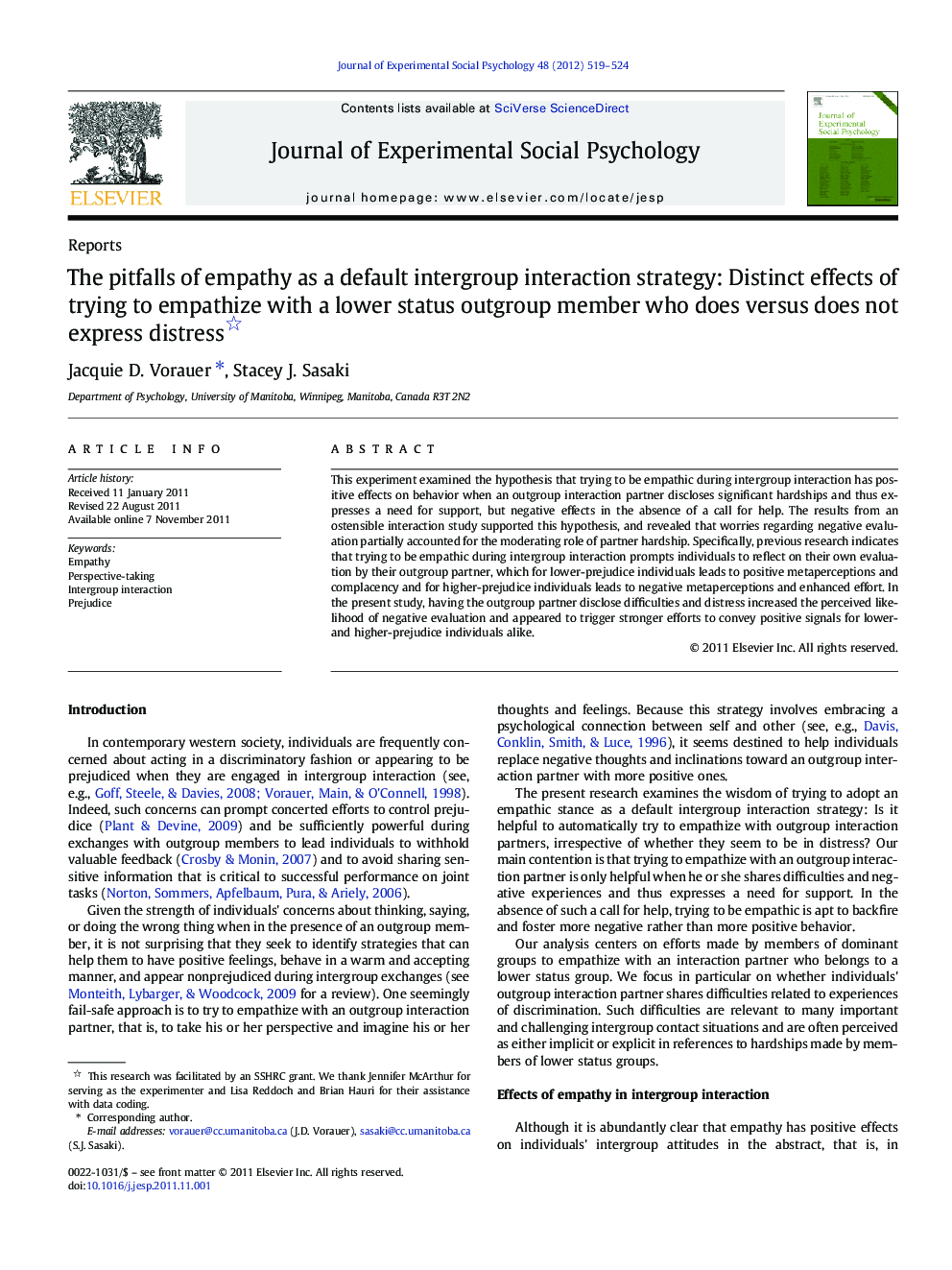| Article ID | Journal | Published Year | Pages | File Type |
|---|---|---|---|---|
| 948514 | Journal of Experimental Social Psychology | 2012 | 6 Pages |
This experiment examined the hypothesis that trying to be empathic during intergroup interaction has positive effects on behavior when an outgroup interaction partner discloses significant hardships and thus expresses a need for support, but negative effects in the absence of a call for help. The results from an ostensible interaction study supported this hypothesis, and revealed that worries regarding negative evaluation partially accounted for the moderating role of partner hardship. Specifically, previous research indicates that trying to be empathic during intergroup interaction prompts individuals to reflect on their own evaluation by their outgroup partner, which for lower-prejudice individuals leads to positive metaperceptions and complacency and for higher-prejudice individuals leads to negative metaperceptions and enhanced effort. In the present study, having the outgroup partner disclose difficulties and distress increased the perceived likelihood of negative evaluation and appeared to trigger stronger efforts to convey positive signals for lower- and higher-prejudice individuals alike.
